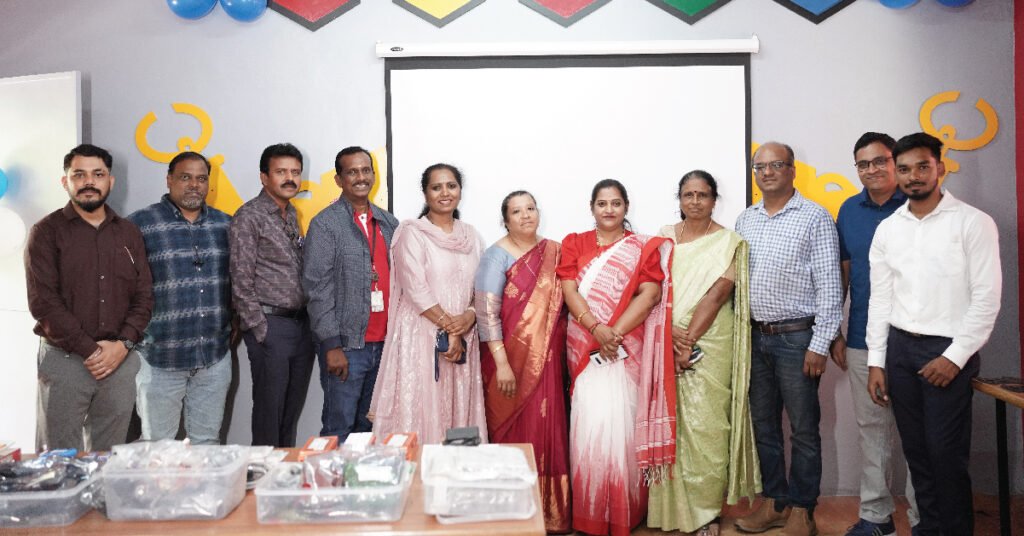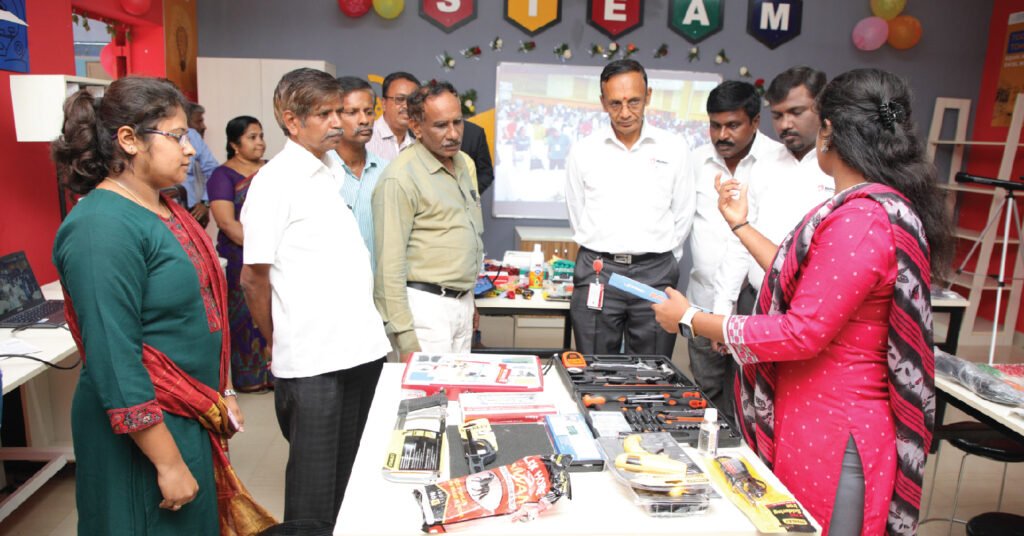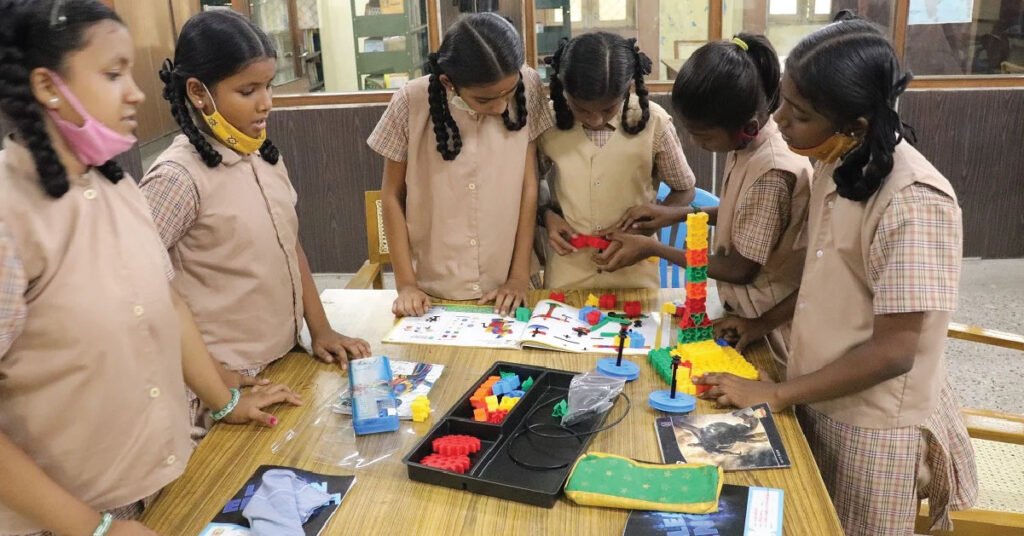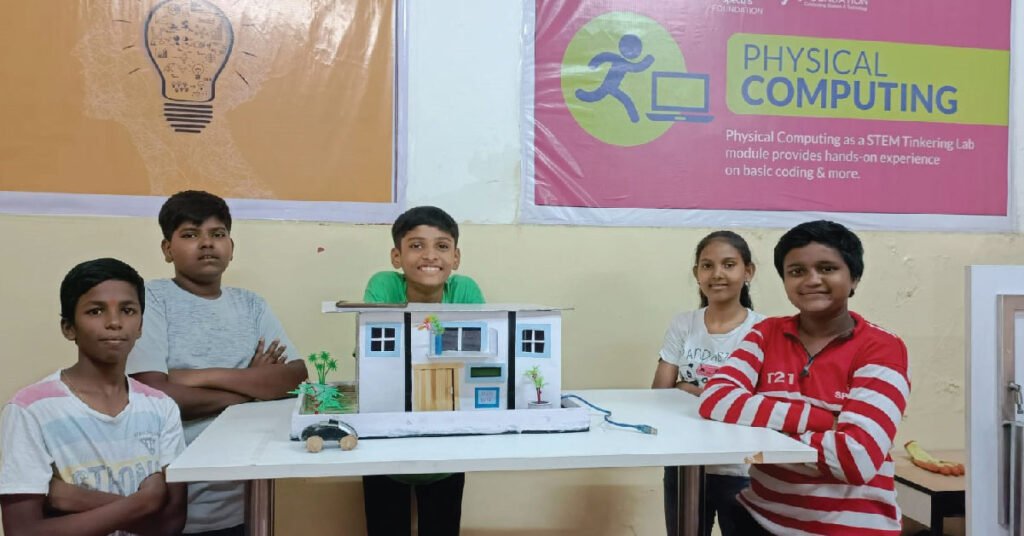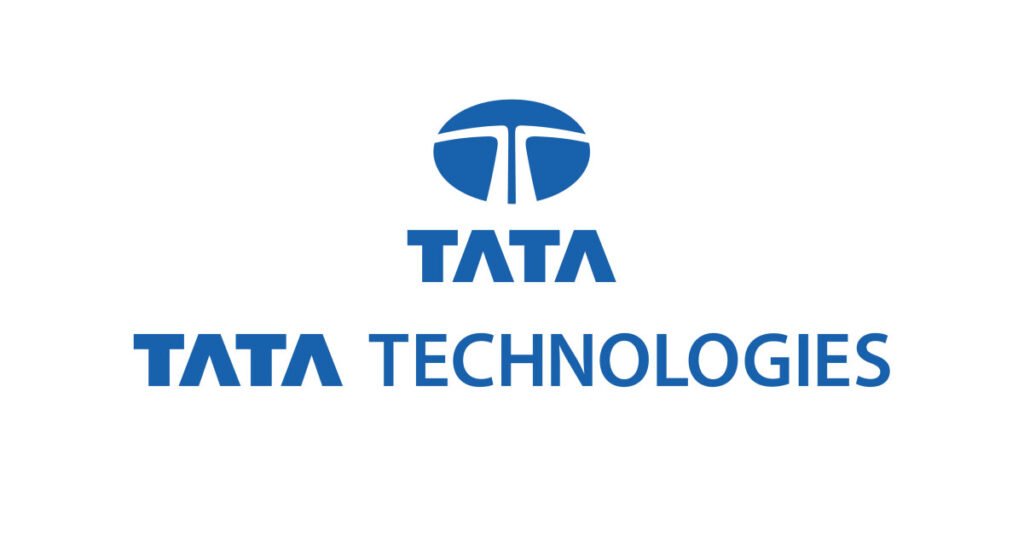STEM education—Science, Technology, Engineering, and Mathematics—has become the bedrock of this future-ready approach. It provides students with the necessary tools, skills, and knowledge to succeed in an increasingly complex world. Recognizing the importance of this, Rockwell Automation has taken a significant step forward by supporting the establishment of a Robo Siksha Kendra (STEM Tinkering Lab)[…]
A number of industries, including education, are being revolutionized by artificial intelligence (AI). The incorporation of AI is changing how students learn and interact with difficult subjects in STEM areas. AI technologies are improving educational performance by adjusting to individual needs and offering real-time help in anything from intelligent tutoring systems to personalized learning experiences.[…]
Today’s education is built around STEM education, which gives students the tools they need to address pressing global issues. It is critical to incorporate sustainability ideas into STEM courses in light of the world’s growing environmental issues, such as pollution, resource depletion, and climate change. Students may get a greater awareness of ecological concerns and[…]
In STEM education, practical learning—which is defined by hands-on activities and real-world problem-solving—is becoming more and more important. In contrast to conventional theoretical methods, hands-on learning involves students actively investigating, testing, and utilizing STEM topics. By bridging the gap between theory and practice, this experiential approach enables students to interact directly with the subject matter[…]
Corporate Social Responsibility, or CSR, has become a potent global force for good. Education is one of the main sectors where CSR activities have had a long-lasting effect. CSR education initiatives, motivated by a feeling of duty and dedication to the community, are changing the game by facilitating fair access to education and empowering those[…]
STEM education plays a critical role in closing the digital gap by promoting vital digital skills and granting access to technology. Problem-solving and experiential learning improve digital literacy and help students from underprivileged communities become tech-savvy. STEM education helps to lessen inequities in digital access by providing tools like computers and software and promoting creative[…]
STEM fields—Science, Technology, Engineering, and Mathematics—traditionally place a strong emphasis on technical proficiency, problem-solving abilities, and analytical capabilities. It places more value on technical expertise and rigorous, data-driven methods than on creativity and the arts, which are essential for innovative and comprehensive problem-solving. The combination of STEM (science, technology, engineering, and mathematics) with the arts[…]
STEM education, encompassing science, technology, engineering, and mathematics, is critical for fostering innovation and driving national progress. By equipping students with skills in critical thinking, problem-solving, and creativity, STEM prepares future leaders to address complex challenges, from climate change to technological advancements. A nation with a strong foundation in STEM education is better positioned to[…]
On the 5th of September 2024, Tata Technologies demonstrated its commitment to fostering a brighter future for India’s youth through its impactful Volunteer Engagement Program at New English High School in Hinjewadi, Pune. The event was an inspiring example of how corporate social responsibility (CSR) initiatives, coupled with hands-on volunteer efforts, can make a meaningful[…]
Science, Technology, Engineering, and Mathematics, or STEM education, is essential for educating pupils for the challenges of the contemporary world. It encourages students to investigate difficult ideas and apply theoretical knowledge in real-world contexts, which develops their critical thinking, problem-solving, and creative abilities. STEM education fosters creativity and flexibility in addition to providing pupils with[…]

